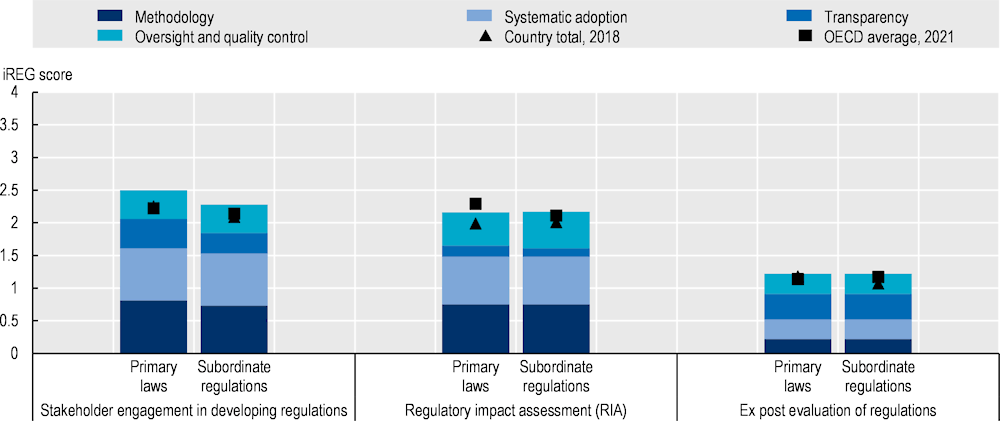Norway has made efforts to tackle the challenges raised by emerging technologies and strengthen its regulatory assessment system. In 2018 and 2019, Norway implemented regulatory testbeds and sandboxes in several sectors, with the objective of encouraging innovation while increasing the country’s understanding of the potential risks and fostering the development of relevant guidance for regulated parties. Moreover, an updated version of the Guidance Notes on the Instructions for Official Studies was published in 2018. Regulators are encouraged to quantify the impact of proposed regulations to inform decision making. While some RIAs are publicly available, transparency could be enhanced by publishing them more systematically for consultation and informing the public in advance that they will have the opportunity to comment.
The Ministry of Finance, is responsible for the Instructions for Official Studies, which sets the requirements on the preparation of regulatory proposals, RIA, stakeholder engagement and ex post evaluation. The Ministry of Finance has delegated responsibility for the administration of the Instructions and for providing guidance on its provisions to the Norwegian Government Agency for Public and Financial Management (DFØ). All ministries may initiate efforts for improving the effectiveness of regulations. The Ministry of Justice and Public Security is responsible for providing guidance on those provisions of the Instructions that are specific to the preparation of laws and regulations, and has the main responsibility for scrutinising the legal quality of regulations under development. The Ministry of Foreign Affairs is responsible for providing guidance on those provisions of the Instructions that relate to EEA and Schengen matters. The Better Regulation Council is an arm’s length oversight body that reviews selected RIAs and proposals for new or altered regulations that have consequences for businesses. It is overseen by the Ministry of Trade, Industry, and Fisheries and responsible for promoting good regulatory practices and reducing burdens. The Council publishes formal opinions on the quality of RIAs and can make suggestions for revision. Its tasks have evolved to capitalise on experience acquired over the years, for example by focusing more strongly on scrutinising whether regulatory proposals are innovation-friendly, putting forward proposals for regulatory improvement such as the report on enhancing RIA quality in the European Economic Area, and conducting advocacy work across government through meetings and seminars with the main producers of regulatory proposals. Its mandate was expanded accordingly in 2020.
In recent years, the Norwegian Better Regulation Council has gained experience and has strengthened its capabilities to scrutinise and provide comments on stakeholder engagement activities. While public consultation is conducted for all draft laws, Norway could increase the frequency of consultations early in the process, before a decision to regulate has been made. Ex post evaluations are initiated by ministries. In important policy areas, ministries normally appoint official commissions to evaluate existing laws and regulations.


 All/■ Always/▲ Yes
All/■ Always/▲ Yes  Major/■ Frequently
Major/■ Frequently Some/■ Sometimes
Some/■ Sometimes Never/▲ No
Never/▲ No